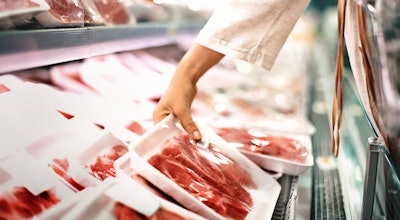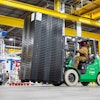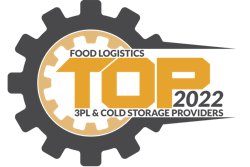
The Food and Drug Administration (FDA) is showing a growing appetite for increasing its farm-to-fork food traceability program. After a decade in existence, the FDA is updating the Food Safety Modernization Act (FSMA) in what is being called the most sweeping reformation of U.S food safety laws within the last seven decades.
The FSMA was originally signed into law in 2011 after a spate of high-profile food recalls spanning multiple states, including a notorious outbreak of salmonella that spread across 46 states and into Canada. Today, an average of one in every six Americans is sickened each year due to foodborne disease. The new revisions are intended to incite new approaches that prioritize and protect human health with amendments centered on food traceability. The regulations will require the food industry to maintain records associated with critical tracking events, including growing, receiving, transforming, creating and shipping food products across supply chains. While the rules will not require companies to maintain electronic records, experts expect the changes to spur further adoption of digital systems, namely, blockchain.
Blockchain’s history in food
Ten of the world’s largest companies deployed blockchain technology in 2017 to track food through a cooperative effort called Food Trust. The Food Trust’s crypto-less application of blockchain targets food sourcing and end-to-end tracking to generate transparency and trust in the global food supply ecosystem. By enhancing visibility into every step in the farm-to-table continuum, blockchain proved effective at tracing contaminated products back to source to prevent foodborne illness as well as reduce food waste with optimized recall management capabilities. The granular data derived from food traceability programs like the Food Trust supports industry giants with the ability to conduct efficient quality checks, capture insight into events, take appropriate informed actions and drastically reduce time and costs across supply chains.
Taking the learnings elsewhere
The merit stands in blockchain’s efficacy to generate immaculate provenance records for traceability across complex supply chain environments and the lessons learned in the food sector translate well to other asset-heavy industries. When combined with Industrial Internet of Things (IIIoT) sensors to create an auditable, immutable ledger of all of the events, including manufacturing and distributing of a product throughout its lifecycle, the benefits of blockchain carry over into sectors like energy, construction and mining, for example. Several key areas include:
● Provenance. Ensuring product quality whether a steak that’s cooked for dinner or steel piping used in an infrastructure build, the benefits of blockchain hold fast. By encoding information across digital relationships, blockchains capture data on financial, historical and qualitative characteristics of physical components spread across global geographic locations, entities and carriers. Harnessing operational data to a distributed ledger enables companies from various sectors to securely track both tangible and intangible assets to supply essential provenance.
For complex industrial supply chains, provenance can be a real challenge; materials and equipment from material sourcing to manufacturing, fabrication, distribution, installation, and commissioning. This is where blockchain can provide much-needed trust, reliability, auditability, transparency and security for full-life cycle traceability of both tangible and intangible goods.
● Supply chain productivity. Stateside, goods’ supply chains are predominantly privately owned and operated and while recently the White House recognized that participants including shipping lines, railroads, truckers, warehouses and cargo owners have made progress digitizing individual operations, they often do no exchange data with one another inciting significant delays and inefficiencies while driving up costs and increasing fragility. Blockchain can lend supply chains a boost to productivity by incentivizing the formation of networks and digital systems that allow for secure and open data sharing as well as provide much needed transparency in the commodity custody timeline.
● Regulatory reporting. Blockchain generates an auditable system of record that can create standardization and accountability resulting in more cost-effective and sustainable methods for environmental, social and governance (ESG) and regulatory reporting. Industrial sectors can deploy blockchain’s innate capabilities to track, measure and manage and apply its benefits to tracking environmental impacts across Scope 1, 2 and 3 emissions.
● Commercial transactions. To foster trust between counterparties and eliminate informational and transactional friction, blockchain-based smart contracts afford a new seamless way of executing commercial transactions. Functioning in tandem with natural language contracts, smart contracts codify existing contract terms, then tap operational data sources – like connected IIoT divides, business processes and legacy systems – to confirm transactional obligations are fulfilled and thus recorded in an immutable, third-party digital record that is shared across participants. Once confirmed, the smart contract then automatically triggers payments enabling visibility, transparency, accuracy and speed into what was previously a contentious, lengthy and convoluted process.
A big push
Blockchain use isn’t nascent in the food industry, but a giant nudge from its leading regulating agency to freshen up the way it tracks products from farm-to-fork will accelerate adoption in food and elsewhere. Rapid economic recovery and a surge in commodity demand is forcing the hand of government agencies to demand open data sharing across counterparties to remedy the problem, highlighted by the White House’s recently launched Freight Logistics Optimization Works (FLOW) initiative.
Energy, manufacturing and other asset-heavy industries have much to learn from the food sector and the application of blockchain technology is the missing ingredient in satisfying cravings for the transparency and traceability that’s needed to ease persistent supply chain strain.



















